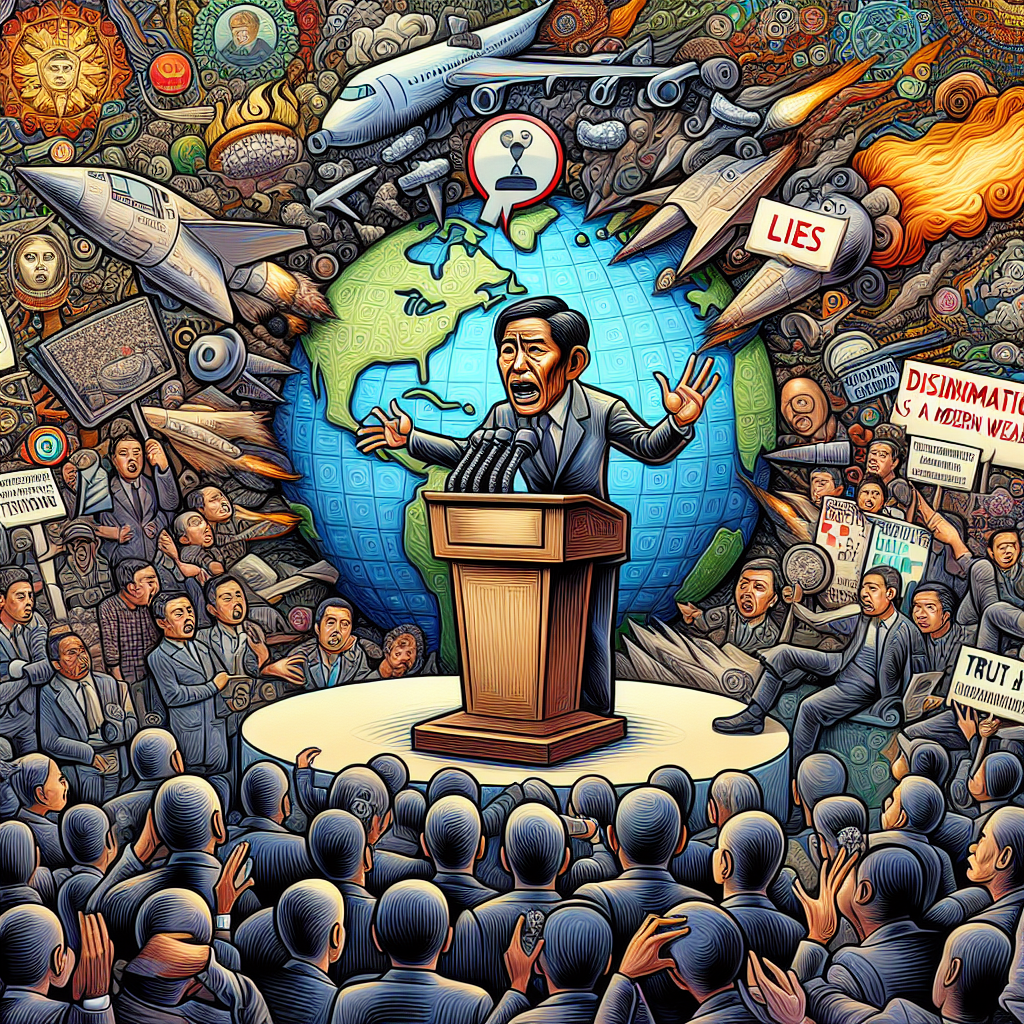By Louis ‘Barok‘ C. Biraogo
In the shadows of modern geopolitics, where truth is often a casualty of strategic manipulation, the battle for the West Philippine Sea stands as a testament to the pernicious power of disinformation. As Foreign Secretary Enrique Manalo took the stage at the East-West Center’s 2024 International Media Conference, his message was clear: the fight for the West Philippine Sea is not just a regional squabble but a global struggle against deceit and coercion.
Disinformation, the weapon of choice in modern warfare, is an insidious force that has reshaped conflicts around the globe. From Russia’s meddling in the 2016 U.S. elections to the spread of fake news during Brexit, the ability to distort facts and manufacture alternate realities has become a potent tool for malign actors. In the West Philippine Sea, China has mastered this dark art, weaving a narrative that the area is merely a chessboard for great power rivalry, thus obscuring its blatant disregard for international law.
Manalo’s speech was a clarion call, cutting through the fog of misinformation. He reminded us that the real issue is not about power plays between nations, but about a single country’s audacious defiance of the United Nations Convention on the Law of the Sea (UNCLOS) and the 2016 Arbitral Award. This award unequivocally recognized the Philippines’ rights within its Exclusive Economic Zone, rights that China continues to trample under the guise of historical claims.
The gravity of the situation in the West Philippine Sea is underscored by the recent violent disruption by the China Coast Guard at Ayungin Shoal, a stark reminder of the aggressive tactics employed to enforce China’s unlawful claims. But disinformation compounds these physical threats. By flooding the information space with falsehoods, China seeks to erode international support for the Philippines and legitimize its actions.
The international community must heed Manalo’s call to action. The Philippines’ steadfast commitment to a rules-based international order, as championed by President Ferdinand R. Marcos Jr., is a beacon of hope. Upholding UNCLOS is not just about the Philippines; it’s about preserving the integrity of international maritime law and ensuring that no single nation can unilaterally rewrite the rules.
Manalo’s emphasis on genuine journalism is paramount. In an age where AI-generated content can blur the lines between fact and fiction, the role of the press in disseminating verified information is more critical than ever. The Philippines’ partnership with media organizations to expose the reality in the West Philippine Sea is a model for how governments and the press can collaborate to counter disinformation.
Moreover, the international community must take stronger stances against China’s misdeeds. The world has witnessed China’s strategic use of disinformation not only in the South China Sea but also in its handling of the COVID-19 pandemic and its narrative on human rights abuses in Xinjiang. These actions, driven by a desire to control the global narrative, threaten the very fabric of international diplomacy and the rule of law.
Diplomacy and peace must be the guiding principles in addressing these challenges. The Philippines’ initiative to engage with allies such as the United States in countering misinformation sets a precedent. The proposed Memorandum of Cooperation on Countering Foreign Information Manipulation is a step towards a united front against the disinformation menace.
Looking globally, we can draw lessons from countries like Estonia, which has successfully countered Russian disinformation through public education and robust cyber defenses. Similarly, Taiwan’s proactive measures to combat Chinese disinformation campaigns offer a roadmap for other nations facing similar threats. The Philippines can adopt and adapt these strategies, emphasizing public awareness and digital literacy to build resilience against disinformation.
China’s actions in the West Philippine Sea are not just a regional issue but a global challenge that tests our collective commitment to truth and justice. As Manalo poignantly highlighted, the international community must reject the reductionist view that frames this conflict as mere power rivalry. Instead, we must see it for what it is: a blatant violation of international law and an affront to the principles of sovereignty and self-determination.
The path forward requires unwavering support for the rule of law, robust international cooperation to counter disinformation, and a renewed commitment to peaceful diplomacy. In this struggle, truth must be our shield, and unity our strength. The world is watching, and history will judge us by how we respond to this pivotal moment. Let us rise to the challenge, championing peace, justice, and the enduring power of truth.

- Sara Duterte’s Political Tightrope: Navigating the Chasm Between Administration and Opposition

- Kris Aquino’s New Love: The Doctor Who Stole the Queen of Media’s Heart

- Waves of Resistance: International Alliance Confronts China’s Maritime Ambitions

- Naming Names: Why Pagcor Must Reveal the Ex-Cabinet Official Behind Illegal POGOs

- Future at Stake: The World Bank’s Urgent Call for Philippine Youth Investment

- Rescheduled Trials and Legal Tactics: What’s Next for Apollo Quiboloy?

- Ethics Over Profit: Why E-Sabong Must Remain Suspended

- From Corner Store to Digital Powerhouse: The Future of Filipino Entrepreneurship









Leave a comment